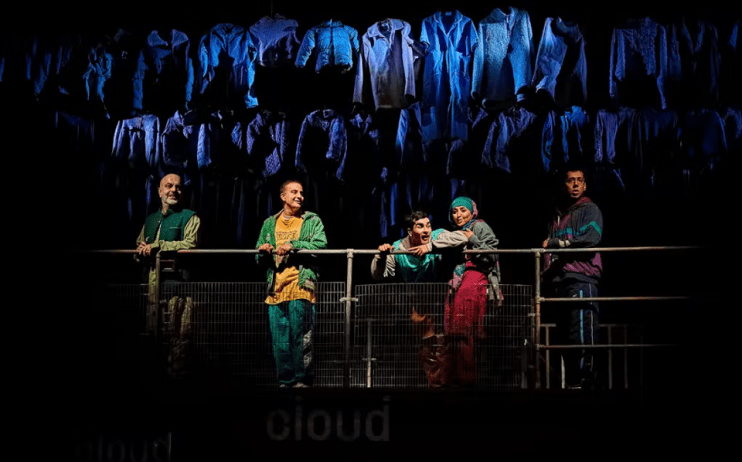The Boy with Two Hearts, National Theatre, review: Poignant tale of love

The Boy With Two Hearts is a true story turned into a book by Hamed and Hessam Amiri, about their own journey from Herat to Cardiff, focusing on their brother Hussein and his chronic heart condition. Transformed into a play by Phil Porter and the Wales Millennium Centre, it is a poignant tale of love and brotherhood, underpinned by a wish to reclaim Afghani voices that are so often erased from history.
In Herat, Afghanistan, the Amiri family are forced to flee after Fariba Amiri becomes a wanted woman after publicly denouncing the Taliban’s draconian views on women’s rights, leading to their long journey to the UK.
The set, designed by Hayley Grindle, is adorned with hanging shirts and divided by a mezzanine, beneath which projections scoot past, adding to the action. The focus on makeshift homes and transitory moments are beautifully presented, and complemented by Amy Mae’s dramatic lighting design.
None of the performances particularly stand out, but that’s not really the point. Instead the production leans into the cast chemistry and skilful moments of physical theatre. The play itself is relatively simplistic, but it deftly treads the balance between powerful moments and light-hearted humour.
Accompanying the players is the omnipresent singer Elaha Soroor, whose haunting tune follows the Amiris at every turn. As a spectator of the action, her empathetic melodies carry the audience’s emotional response to the piece, whilst also adding a sorrowful rhythm to the production.
The Boy With Two Hearts can stand for many stories about the painful journeys made every year by those seeking asylum, but the Amiri’s tale is as uplifting as it is profound.
The Boy with Two Hearts plays at the National Theatre until 12 November